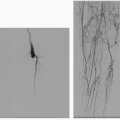Drug Administration
Ellen McKeon-Levine
Petra Clark
Preprocedural Considerations
Premedication orders should never be routine but must be individualized considering patient’s age, weight, medical and physical condition, anxiety level, allergy history, previous drug reactions, tolerance or abuse of drugs, lab data, and duration and type of procedure.
1. Patients with a history of a contrast reaction need premedication to prevent an adverse reaction or anaphylaxis to the contrast agent. The Modified Greenberger Protocol recommends the administration of prednisone 50 mg by mouth (PO) given at 13, 7, and at 1 hour prior to contrast administration—the last dose is given in combination with cetirizine hydrochloride (Zyrtec) 10 mg PO or diphenhydramine (Benadryl) 50 mg intravenously (IV). The Modified Laser Protocol is used for patients with diabetes, for those who are steroid intolerant, and for those who have previously tolerated it. This protocol consists of the administration prednisone 40 mg PO given 12 and 2 hours before contrast administration—the last dose is again given in combination with cetirizine hydrochloride (Zyrtec) or diphenhydramine (Benadryl) as described with the Modified Greenberger Protocol.
2. Antimicrobial prophylaxis, for prevention of infections, is recommended to all patients receiving a tunneled central venous catheter (CVC) or drainage catheter.
3. Antiemetics are recommended for patients who experience postoperative nausea and vomiting.
4. Patients on anticoagulation need to be given a plan by the physician for holding these medications or instituting bridging therapy until routine anticoagulants can be restarted.
5. Patients with renal insufficiency should be hydrated (as tolerated) and considered for pretreatment with PO acetylcysteine (Mucomyst).
Procedural Considerations
1. During the preprocedural phase, a nurse will verify the patient’s nil per os (NPO) status (American Society of Anesthesiologists [ASA] recommendations are NPO




Stay updated, free articles. Join our Telegram channel

Full access? Get Clinical Tree





